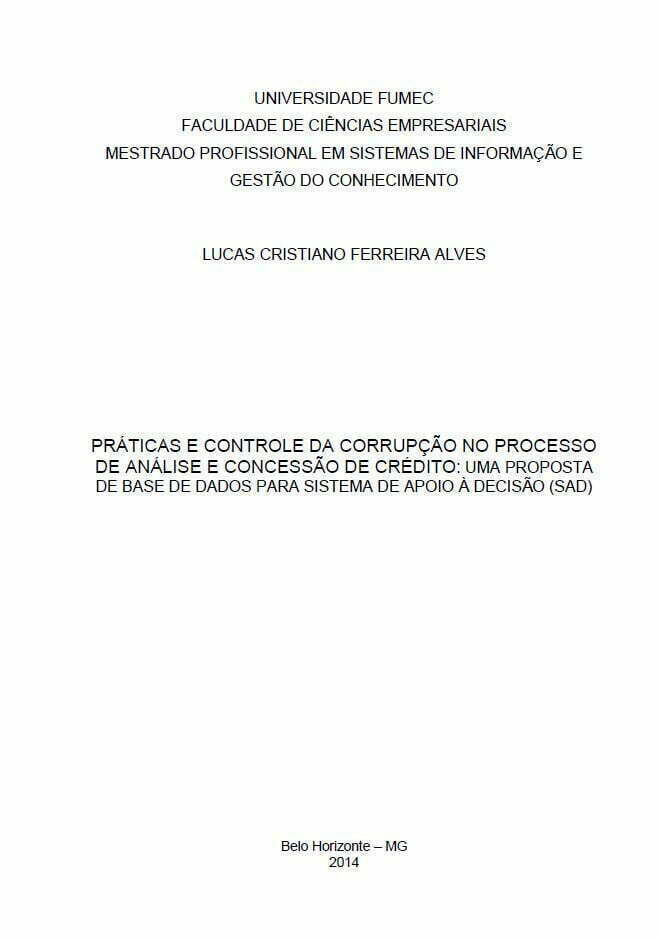
[Abstract]
This study highlights corrupt practices and corruption control mechanisms in the process of analyzing and granting bank credit and proposes a database for combating these practices and dysfunctions. Corruption in Brazil – as in any other country – stems from the inability to resist the risks of opportunism, inherent in human transactions, mediated by public and private institutions. Control and prevention mechanisms make it possible to decrease the opportunities for corruption by simplifying procedures and regulations through the increased quality in the use of information technology. The banking segment, the focus area of this research, was represented here by a nationally active bank, and the interviewed public was
made up of assistants, managers, and auditors, which allowed the research a great diversity of contributions and positions regarding the proposed theme.
In the methodology, exploratory research and content analysis were used. To describe the contents contained in the statements, thematic analysis was performed. The results obtained showed the existence of several corrupt practices, misconduct, and control mechanisms that can be used to mitigate these practices during the process of analysis and granting of
credit. The data generated can be used to support the structuring of a decision support system in banking institutions. It was also possible to identify the most recurrent actions and the main weaknesses in credit operations. These surveys make new analyses with different approaches possible, due to the large number of concepts identified during the interviews.
Keywords: Corrupt practices. Control mechanisms and systems. Database. Decision Support System.
Publication Year: 2014
Student: Lucas Cristiano Ferreira Alves
Advisor: Prof. Dr. Daniel Jardim Pardini
Program: Master’s Course in Information Systems and Knowledge Management at University FUMEC
University: Faculty of Business Sciences – University FUMEC (Brazil)






